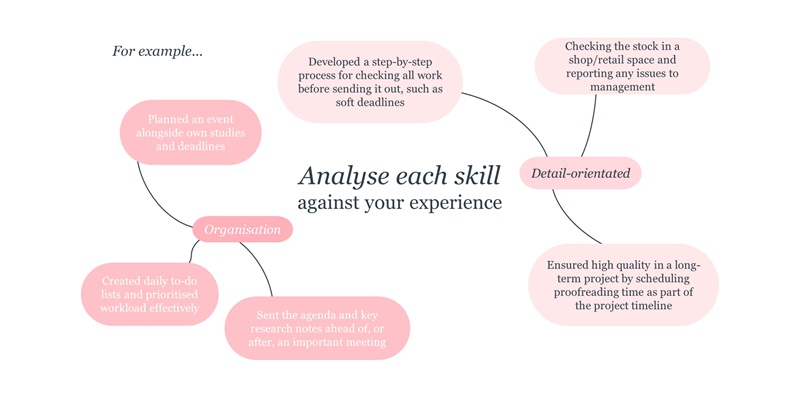
The Nest (Employability Hub)
Achieve your full potential.
Use our employability hub, designed and written by recruiters at Bird & Bird, to help you as you navigate your way into the legal sector.
Develop your legal skills and fill the gaps in your skillset. Discover work experience opportunities. Learn, from a recruiters perspective, what makes an excellent candidate. Build your commercial awareness toolkit and showcase this knowledge during the recruitment process. Find mentoring opportunities and learn from our leading lawyers. Access events and law fairs to further your understanding of our firm, our work, and our people.
Learn all you need to know about the recruitment process and what we look for in our future trainee solicitors and solicitor apprentices before spreading your wings and applying to our opportunities.
Solicitor Apprenticeship
Stage 1 - Online application form
Stage 2 - Watson-Glaser Critical Thinking test
Stage 3 - Pre-recorded video interview
Stage 4 - In-person assessment centre
Vacation Scheme
Stage 1 - Online application form
Stage 2 - Watson-Glaser Critical Thinking test
Stage 3 - Pre-recorded video interview
Stage 4 - Virtual assessment centre
Training Contract
Stage 1 - Online application form
Stage 2 - Watson-Glaser Critical Thinking test
Stage 3 - Telephone interview
Stage 4 - In-person assessment centre
Early Bird Scholarship
Stage 1 - Online application form
Stage 2 - Watson-Glaser Critical Thinking test
Stage 3 - Pre-recorded video interview
Open Days, Office Drop-In and Flying Start Programme
Application form or registration only.
Stage 1
The application form includes your personal details, education, work experience, and (in some cases) competency and firm-specific questions. You may have a word limit to answer these questions. You should be specific to us and the role in your answers, showcasing your research, commercial awareness, skillset, and experience.
Here's some top tips on applying to us:
- From your personal details to education and work experience, we expect you to complete all areas of the form.
- Understand the key skills and competencies required for the role and demonstrate how you meet these (e.g., Proactivity & Initiative and Communication & Engagement).
- Whether you've completed legal or non-legal work experience, online or in-person internships, volunteering, held positions of responsibility, or attended events - we want to hear about it. Think about how your experience is transferable to the role and give us an insight into what you did or what you learnt.
- Do your research - you should be clear on why you want to work with us and why you want to be a solicitor.
- Refer to any articles, podcasts or firm news to strengthen your application, particularly if these have motivated you to apply to us.
- Don't copy and paste the same answers to different law firms - you need to tailor each of your applications to the firm you're applying to.
- Showcase your personality - you'll be encouraged to be yourself here where everyone is different with a diversity of backgrounds, skills, and knowledge.
- Be concise in your answers but use as much of the word limit as possible.
- Check and check again - proofread your application from the beginning to end.
We operate rolling recruitment, which means we screen applications as they are received, rather than after our deadline. We encourage you to apply as early as possible.
Stage 2
The Watson-Glaser Critical Thinking Test evaluates your critical thinking skills and is used by lots of law firms to recruit solicitors. It's a multiple-choice aptitude assessment widely used by law firms to access the ability to think critically, draw conclusions, assess arguments, recognise assumptions, and evaluate arguments. There's 5 sections to complete: assessment of inferences, recognition of assumptions, deduction, interpretation, and evaluation.
If you progress to this stage, you'll have up to 7 days to complete this test. However, it's not timed so you can take as long as you need to complete the test. We're focusing on your performance rather than output under time pressure.
We know that not everyone has previous experience of psychometric testing – try out our free practice test here: https://secure.getfeedback.net/v2/DYUARZQVYB.
Stage 3
The video interview includes a range of competency-based and firm-specific questions. You'll have one minute thinking time and two minutes answering time for each question - you need to use this time wisely.Here's some top tips to help you at this stage:
- Think about the questions that are likely to come up around key competencies and your motivations – plan how you may showcase relevant experience, skills and commercial awareness in your answers.
- Prepare by creating a 'bank' of situations or experiences to refer to in your answers, then you can use your thinking time to plan the structure and detail of your answer, rather than pondering on what examples to draw upon.
- Use the "STAR" method to clearly explain the situation, what actions you took, how you resolved the situation, and what you learnt as a reflection or the result to structure your answers.
- Use dynamic language and active words to describe what you did, rather than passive words. For example: collaborated, organised, designed, liaised, and created.
- Try placing your device on top of books or a stand so your eyes are level with the camera, as this will help with your posture and make you appear more confident.
- Don’t look at your notes or read off the screen, it’ll make you seem unprepared.
- Use your voice by alternating the tone, pitch and volume to emphasise any points you’re making in your answer – it’s not only about what you say, but how you say it.
Practice online questions at shortlister.me, as the pre-recorded nature of video interviews can be difficult.
If you progress to this stage, you'll have 7 days to complete this interview.
Stage 4
A virtual assessment centre consists of an interview and written assessment. An in-person assessment centre consists of an interview, written assessment, group exercise and additional assessments. An assessment centre can be in-person, virtual or hybrid depending on the role, programme, or opportunity you’re applying for.Here's some top tips to get ready for this stage:
- Respond promptly to emails, particularly in relation to booking interviews or confirming your attendance – don't be the person the recruiter needs to chase.
- Whether it's in-person or virtual, dress appropriately, professionally and comfortably. If in doubt, always dress smarter than you think you need to.
- Be on time for your assessments, by factoring in time for travel issues and/or technical difficulties. If you experience any delays or issues, contact us immediately.
- Practice your written communication and strengthen your proofreading skills – our Virtual Experience Programme has different tasks to complete and shows you how a solicitor would approach the task with example answers.
- Think about the interview questions that are likely to come up around key competencies and your motivations – plan how you may showcase relevant experience, skills and commercial awareness in your answers. Again, refer to your 'bank' of situations or experiences and ensure your answers are structured, clear, and concise.
- Ask questions to your interviewers and gain an insight into the firm – don't forget, you're interviewing us too to see whether we're the right firm for you.
Life of an Applicant

The application process was easy to understand and transparent throughout. It was clear at every stage what I was being assessed on, how to prepare and the criteria I was being assessed against. Throughout the application process, I felt that everyone I interacted with at the firm wanted me to succeed and they were truly excited to get to know me.
Moona Malik Future Trainee Solicitor

No matter how many times you fail, your perseverance and determination will be rewarded. You will know when a firm is the right fit for you because you will be able to succeed by being yourself.
Julia Swietek Future Trainee Solicitor
Throughout the recruitment process, you'll need to showcase your skills, experience, and commercial awareness through different assessment styles. Below, are competencies we recognise in our solicitors, which we assess all aspiring solicitors against:
- Proactivity & Initiative
- Enthusiasm & Willingness to Learn
- Communication & Engagement
- Critical Thinking & Decision Making
- Quality & Detail Focus
- Project Management & Organisation
- Motivation & Commercial Awareness
- Working Effectively under Pressure
From pulling pints to writing drafts or stacking shelves to closing deals: the skills you've developed from previous experiences may be transferrable to the role of a solicitor. Whether you're experienced in retail, hospitality, or professional services, you may have the key competencies we look for already.
Exercise: Create a spider diagram around one competency and list the experiences, situations, challenges, or roles you have which demonstrate that skill (see example below). Use this to help tailor your work experience on your application form and examples to use in your interview questions to the firm and the role of a solicitor. By clearly identifying the skills you have with examples of experience, you'll be able to showcase your suitability for the role.
You can visualise where there are 'gaps' between your skillset and the skills required for the role. By spotting any areas where your experience may be lacking, you create actions points on what skills you need to develop. From work experience to volunteering, societies and hobbies, or even studying, you can develop your skills for a career in law through anything you do.

Simply put, commercial awareness is an understanding of the business environment, such as current deals, transactions and issues. In law, commercial awareness is important for giving clients legal advice from their perspective and acknowledging the opportunities and risks they may face. To be commercially aware is to stay up to date on the business and commercial sphere.
Our solicitors need commercial awareness in order to offer the best service and advice to our clients. So, we're looking for our future solicitors to demonstrate that they're developing their commercial awareness and understand the importance of it for the role.
How can you develop your commercial awareness?
- Try focusing on a couple of sectors, practice areas or trending topics that interest you by keeping an eye on weekly updates or monthly summaries of what's going on - check out Bird & Bird’s trending topics here.
- Meet with experts in the field and hear first-hand what the latest opportunities, risks, and challenges are in a particular area of law through law fairs, panel discussions, workshops, and insight sessions – download our events calendar here.
- Watch the news and critique what you see using a “PESTLE” and “SWOT” analysis. A “PESTLE” analysis (political, economic, social, technological, legal and environmental) considers the external factors impacting the business environment, which when paired with a “SWOT” analysis (strengths, weaknesses, opportunities and threats), can identify the possible opportunities and risks for a client or law firm to be aware of. By adopting this framework when critiquing current trends and information, you can understand the wider business environment and develop your critical thinking.
- Browse specialist websites, such as AllAboutLaw, Legal Cheek, and The Lawyer Portal and read business publications relevant to your interests.
- Listen to podcasts and radio shows and follow law-specific social media pages and lawfluencers for on-the-go insights – you can follow us on LinkedIn, @twobirdsearlycareers on Instagram, and @twobirdscareers on X.
- Follow industry-specific forums or become a member of a Law Society to broaden your network and interact with others with similar interests.
- Explore our website and social media pages to understand the firm's culture, type of work we do, and our recent achievements or recognitions in the industry.
- Read articles and case studies, listen to podcasts, and search for firm-specific news to strengthen your knowledge of the firm, your commercial awareness, and your understanding of the role.
- Find your niche and discover whether there's a specific area of law that interests you. Are you super keen on GenAI? Do you know all about consumer rights in the Retail & Consumer sector? If so, let us know in the recruitment process.
- Attend events, law fairs and workshops so you can meet recruiters and solicitors – gain an insight into the things you can't find on a website (e.g., recent cases, new clients, culture).
Scroll below to ‘Finding events and law fairs’ to get started.
Whether you’re finishing school or college, commencing a university degree, or considering changing to a career in law, we have opportunities for you. From workshops, panel discussions and law fairs, to online work experience and open days, there’s so much to discover at Bird & Bird.
Download our events calendar here to access in-person and virtual opportunities to further your understanding of our firm, our work, and our people. Or, sign-up to one of our Open Days or Office Drop-Ins.
In 2019, we made the active decision to not target individual schools, colleges, or universities as part of our sustainability and diversity initiative. Rather than attending selected campuses, we partner with charities, publications, and organisations to promote our opportunities to aspiring solicitors no matter their background or education. We recruit from all schools, colleges, universities, and degree subjects.
Click on our partnerships below to see what we're up to:
- AllAboutLaw
- Aspiring Solicitors
- Bright Network
- City Century
- Gradcracker (STEM)
- GROW Mentoring
- Legal Cheek
- Talent Spaces
- Target Jobs
- STEM Women
- Vantage (Rare Recruitment)
- Young Professionals
Every single interaction, conversation, event or meeting brings you into contact with new people; it's an opportunity to make a connection. Networking is an important skill that involves exchanging ideas and information between individuals who are connected by a common career, industry, or interest. Networking can increase your confidence, teach you new things, keep you informed, improve your communication skills, inspire new ideas and make your more innovative, and increases your professional presence.
Don't know anyone in the legal sector? Here's how you can develop your legal network!
LinkedIn. Networking is not just connecting with others on LinkedIn, but using it as a resource to research recent firm news from the law firms you follow, find career opportunities on the jobs function, and view the interests of those you follow, such as associates and partners.
Mentoring. Are you looking for a mentor in the legal sector? Meet our future and current trainee solicitors, associates, and partners as 'AS Ambassadors' on Aspiring Solicitors and as 'GROW Mentors' at GROW Mentoring.
Events. Think about networking with your fellow aspiring solicitors at careers fairs and events too - you never know where you may see them again, and who knows, you may even work with them as solicitors in the future! Use your networks at school, college, and university to build a platform for knowledge sharing to help others looking to get into law.
Did you know? Networking is also an excellent way of practicing your communication skills by talking to new people, such as solicitors, recruiters, and fellow aspiring solicitors. By attending events and showcasing what you learnt during the recruitment process, you can demonstrate your enthusiasm, willingness to learn, and understanding of the firm, its work, and its people.
The early bird catches the worm – take your first steps towards a career in the legal sector with our Solicitor Apprenticeship Programme, Early Bird Pathway (Early Bird Scholarship), Solicitor Apprentice Open Day, Office Drop-Ins, and Virtual Experience Programme.
Take flight ahead of the flock with our early career opportunities tailored for undergraduate students not yet eligible for a training contract, including the Flying Start Programme, Office Drop-Ins, and Virtual Experience Programme.
If you're super curious about the legal sector then explore your possibilities with our Vacation Schemes, Training Contract, Trainee Solicitor Open Day, Office Drop-Ins, STEM Solicitors Open Day, and Virtual Experience Programme.
Vacation Schemes Training Contract